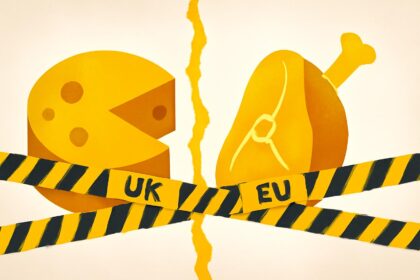Hollywood Turns to Video Games to Refresh Film and TV Content
After decades of mixed results, Hollywood studios have recently found success in adapting video game intellectual properties (IPs) for the big and small screens. This shift is highlighted by the strong box office performance of Universal’s The Super Mario Bros. Movie and Warner Bros.’ A Minecraft Movie, alongside popular television series such as Amazon Prime Video’s Fallout and HBO’s The Last of Us.
Shawn Robbins, director of analytics at Fandango and founder of Box Office Theory, noted that skepticism toward video game adaptations has diminished as recent projects have reversed a long-standing trend of critical and commercial disappointments.
Expanding Development Pipelines
Paramount recently announced plans to develop a live-action Call of Duty film and distribute the latest Street Fighter adaptation under a three-year deal with Legendary Entertainment. Additional projects in development include films based on Elden Ring, Helldivers, Horizon Zero Dawn, and The Legend of Zelda. On the television front, adaptations of Tomb Raider, God of War, Mass Effect, and Assassin’s Creed are underway.
From Early Struggles to Breakthroughs
The first notable video game adaptation, 1993’s live-action Super Mario Brothers, was both a critical and commercial failure, earning $20.9 million domestically and drawing widespread criticism. Over the subsequent 25 years, only a handful of video game films crossed the $100 million domestic box office mark, with none receiving a “fresh” rating on Rotten Tomatoes, indicating persistent creative challenges in translating interactive experiences to cinema.
However, the landscape began to change in 2019 with Warner Bros.’ Pokémon Detective Pikachu, which earned $144 million domestically and a 68% fresh rating. Paramount’s Sonic the Hedgehog soon followed, achieving a 64% fresh rating and $144 million domestic gross despite pandemic-related theater closures. The franchise has since generated over $1 billion globally, with more installments planned.
Universal’s The Super Mario Bros. Movie set new records in 2023, grossing $574 million domestically and $1.3 billion worldwide—the highest for any video game adaptation. Warner Bros.’ 2025 A Minecraft Movie also performed strongly, earning $423 million in North America and $957 million globally.
Technological Advances and Audience Engagement
Improved computer-generated imagery has eased the challenge of recreating complex game worlds, allowing filmmakers to emphasize character development and storytelling. Toby Ascher, producer of the Sonic films, emphasized the importance of emotional arcs over mere worldbuilding, a shift that resonates with audiences.
The maturation of gamers into adults who now influence creative decisions has also contributed to more authentic and compelling adaptations. Paramount CEO David Ellison expressed personal enthusiasm for bringing Call of Duty to the screen, underscoring the deep-rooted fandom driving these projects.
Strategic Importance for Hollywood’s Future
The Entertainment Software Association estimates over 205 million Americans play video games, predominantly from Gen Alpha, Gen Z, and Millennials. This sizable audience presents a valuable opportunity for studios seeking to engage younger demographics and sustain box office growth.
Industry analysts highlight that video game adaptations may not exponentially grow the film industry but can serve as a vital replacement for genres like superhero films, which have seen inconsistent returns. Paul Dergarabedian, senior media analyst at Comscore, described video game properties as a “virtual treasure trove” for producers aiming to capitalize on established fan bases.
As Hollywood continues to refine its approach, the integration of video game IPs into mainstream entertainment appears poised to become a significant and enduring trend.
FinOracleAI — Market View
The growing success of video game adaptations is likely to have a positive short-term impact on the entertainment sector, as studios leverage well-known IPs to attract younger audiences and diversify content portfolios. This trend reduces reliance on traditional blockbuster genres, such as superhero films, which have shown volatility. Key risks include maintaining quality storytelling to avoid audience fatigue and ensuring adaptations resonate beyond core gaming communities. Upcoming releases, especially high-profile projects like Call of Duty, will be critical to sustaining momentum and investor confidence.
Impact: positive













